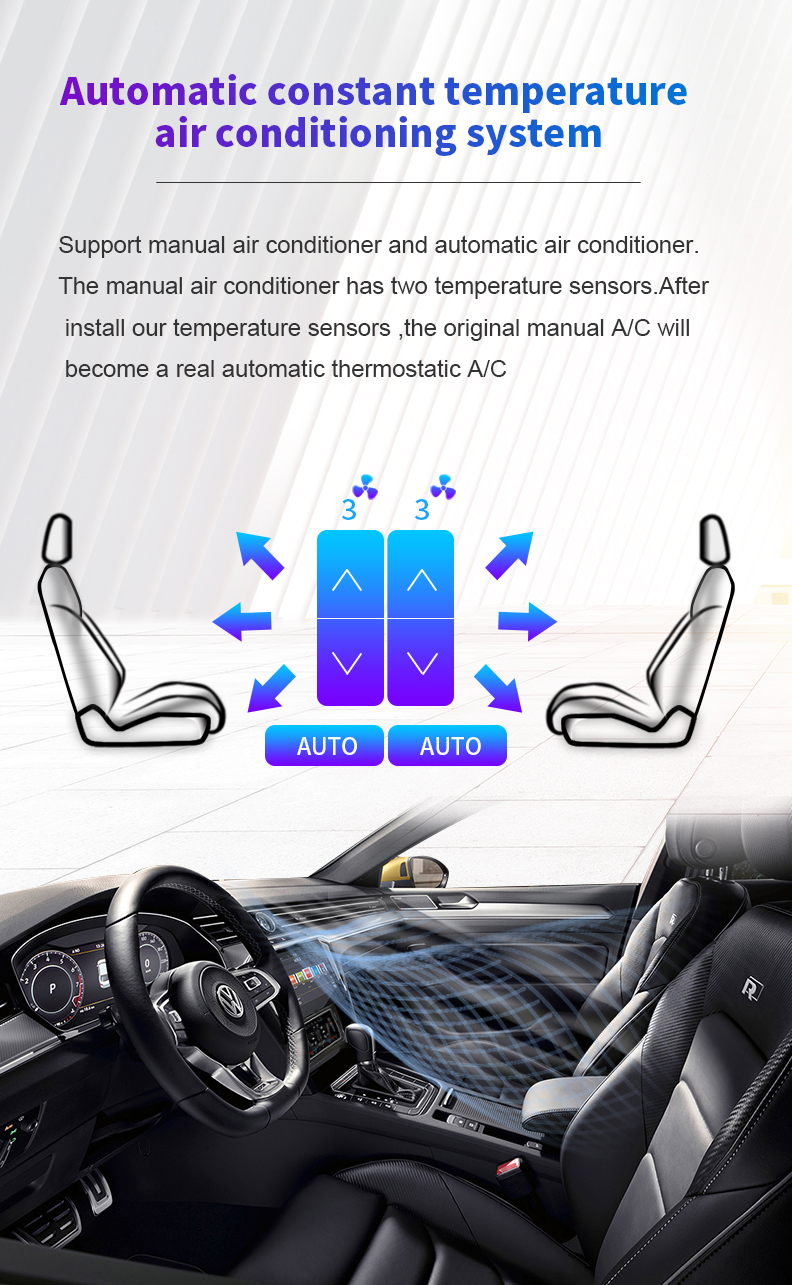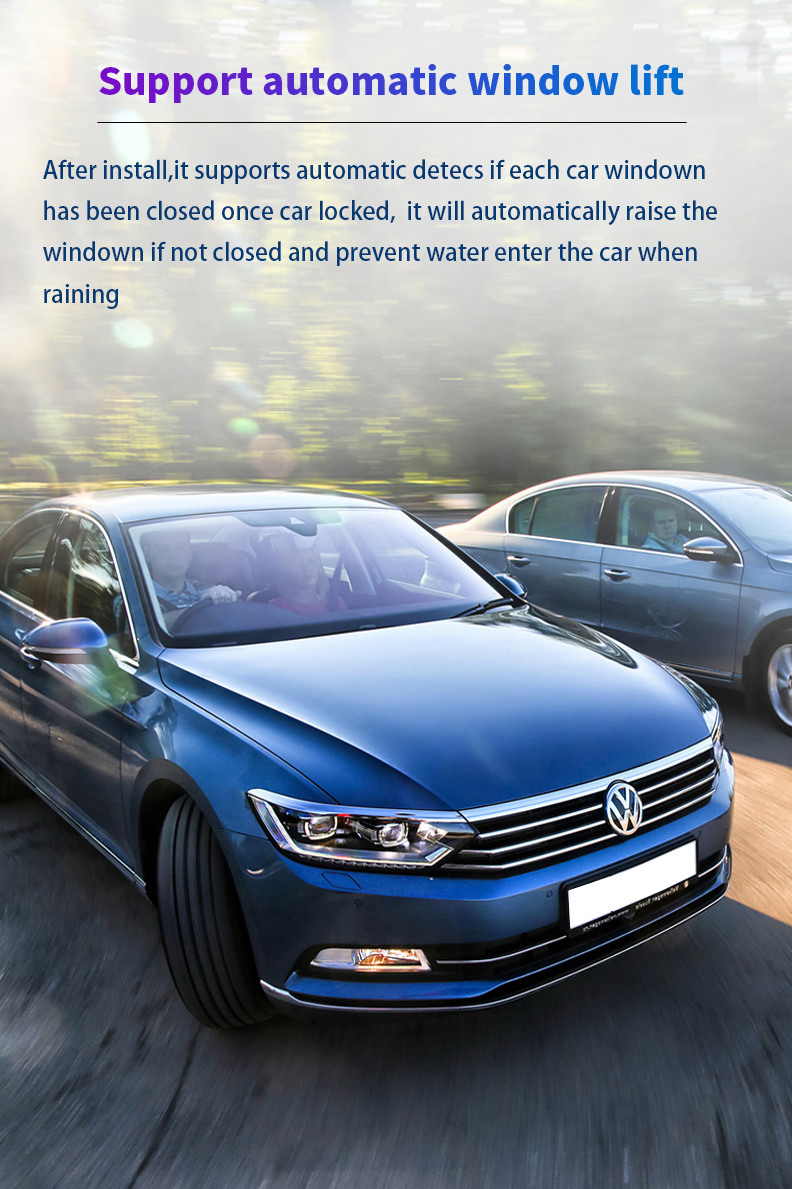5 Exciting Trends in Volkswagen Climate Panel Technology

Volkswagen Group, a pioneer in automotive innovation, continues to push boundaries with its cutting-edge technologies. One of their latest advancements is the Volkswagen Climate panel technology, revolutionizing climate control in vehicles. In this blog, we delve into five exciting trends that showcase Volkswagen's commitment to excellence and sustainability.
Intuitive Climate Control
In the realm of automotive innovation, Volkswagen Climate panel technology stands out as a beacon of progress. The focus on creating an intuitive climate control system reflects Volkswagen's dedication to enhancing the driving experience. Let's explore how these advancements are shaping the future of vehicle climate management.
Enhanced User Experience
When it comes to user interaction, Touchscreen Integration takes center stage in Volkswagen's climate control design. Imagine effortlessly adjusting your car's temperature with just a tap on a sleek touchscreen interface. This seamless integration not only simplifies the process but also adds a touch of sophistication to your driving experience.
For those who prefer a more hands-free approach, Voice Control Features offer a futuristic way to manage your vehicle's climate settings. By simply speaking commands, you can instruct your car to adjust the temperature, fan speed, or even activate specific modes. It's like having a personal assistant dedicated solely to keeping you comfortable on the road.
Volkswagen Climate panel Advancements
Underpinning this user-centric approach are Smart Sensors that continuously monitor environmental conditions inside and outside the vehicle. These sensors gather real-time data to ensure optimal comfort levels for all passengers. Whether it's adjusting airflow based on sunlight exposure or fine-tuning temperatures according to external weather changes, Volkswagen's smart sensors pave the way for a truly personalized climate control experience.
Complementing this intelligent system are Adaptive Climate Settings, which go beyond traditional presets by learning from your preferences and habits. Through machine learning algorithms, your car adapts its climate control behavior to suit your individual needs. Say goodbye to manual adjustments; with adaptive settings, your Volkswagen becomes attuned to your comfort requirements like never before.
AI-Optimized Material Structures
In the realm of automotive innovation, Volkswagen is at the forefront of developing AI-Optimized Material Structures that are set to redefine vehicle design. By leveraging artificial intelligence, Volkswagen engineers are creating lightweight materials that not only enhance the performance of vehicles but also contribute to a more sustainable future.
Lightweight Design
The integration of AI in material design brings forth a revolutionary approach to crafting vehicles. Through advanced algorithms and data analysis, Volkswagen can optimize the composition of materials used in their cars. This results in a streamlined construction process, leading to vehicles that are lighter yet stronger than ever before.
Benefits for Electric Cars
For electric vehicles, this focus on lightweight design holds immense significance. By reducing the overall weight of the vehicle, Volkswagen can extend the range of their electric cars, allowing drivers to travel longer distances on a single charge. Moreover, lighter electric cars require less energy to operate, contributing to increased efficiency and reduced environmental impact.
Impact on Efficiency
The impact of AI-optimized material structures extends beyond electric cars. By incorporating these innovative materials into their entire lineup, Volkswagen aims to improve the overall efficiency of their vehicles. Lighter cars consume less fuel or electricity, resulting in lower emissions and reduced operating costs for drivers. This commitment to efficiency aligns with Volkswagen's vision for a greener automotive industry.
Volkswagen ClimatePartner GmbH Innovations
In collaboration with Volkswagen ClimatePartner GmbH, Volkswagen is spearheading advancements in sustainable vehicle manufacturing. The use of AI-optimized material structures plays a pivotal role in these innovations, enabling the production of cars that are both environmentally friendly and high-performing.
Sustainable Materials
Through meticulous research and development, Volkswagen ClimatePartner GmbH has identified sustainable materials that align with their eco-conscious goals. These materials not only reduce the carbon footprint of vehicle production but also promote recycling and reuse practices within the automotive industry. By prioritizing sustainability, Volkswagen sets a new standard for responsible manufacturing.
Environmental Impact
The adoption of AI-optimized material structures has far-reaching implications for the environment. By utilizing lightweight and sustainable materials in their vehicles, Volkswagen significantly reduces resource consumption and waste generation during manufacturing processes. This proactive approach underscores Volkswagen's commitment to mitigating climate change and promoting ecological balance through innovative solutions.
Integration with Automated Driving

In the realm of automotive innovation, Volkswagen is at the forefront of integrating climate control with automated driving technologies. This strategic move not only enhances the driving experience but also sets a new standard for intelligent vehicle management.
Partnership with Mobileye
Collaborating with Mobileye, a leader in advanced driver assistance systems, Volkswagen is revolutionizing how cars interact with their surroundings. By incorporating cutting-edge technologies from Mobileye, Volkswagen vehicles are equipped with Advanced Driver Assistance Systems that enhance safety and efficiency on the road.
Advanced Driver Assistance Systems
The integration of Advanced Driver Assistance Systems brings a new level of intelligence to Volkswagen vehicles. These systems utilize real-time data and sensors to assist drivers in various scenarios, from lane-keeping assistance to collision avoidance. With these features, Volkswagen ensures that drivers have an extra layer of protection while on the road.
Climate Control Synchronization
One of the most exciting aspects of this partnership is the synchronization between automated driving functions and climate control settings. Imagine your car seamlessly adjusting its temperature and airflow based on external factors detected by the automated driving system. This synchronization not only optimizes comfort but also contributes to a safer and more enjoyable driving experience.
Future of Automated Climate Control
Looking ahead, Volkswagen envisions a future where climate control goes beyond manual adjustments and enters the realm of predictive intelligence. By harnessing data analytics and machine learning algorithms, Volkswagen is paving the way for Predictive Climate Adjustments that anticipate your comfort needs before you even realize them.
Predictive Climate Adjustments
Through predictive algorithms, your Volkswagen will learn your preferences over time and proactively adjust climate settings to suit your comfort levels. Whether it's pre-cooling the cabin on a hot day or warming it up during winter months, predictive climate adjustments ensure that you step into a perfectly comfortable environment every time you enter your car.
User Customization Options
In addition to predictive capabilities, Volkswagen is committed to offering User Customization Options that empower drivers to personalize their climate control experience. From setting individual profiles for different drivers to customizing preferred temperature zones, Volkswagen ensures that every driver can tailor their climate settings according to their unique preferences.
Recapping the journey through Volkswagen's innovative climate panel technology, the trends unveiled a future where intuitive control meets sustainable design. Emphasizing a vision for efficient and eco-conscious vehicles, Volkswagen's commitment shines bright. Readers are encouraged to stay tuned for more exciting advancements in automotive technology.
See Also
Upgrade Your VW Air Conditioning Panel with Voice Recognition
Improved VW Golf 6 and Golf 7 Digital Instrument Displays
Contrast of Air Conditioning & Heating Controls in Golf 6 and Golf 7: 2015 VW Golf
2024 Contrast of Mirror Link Choices for VW Dashboard Using Linux
5 Methods Mirror Carplay 2K Model 3Y XS Improves Vehicle Safety
